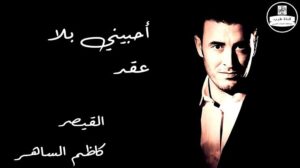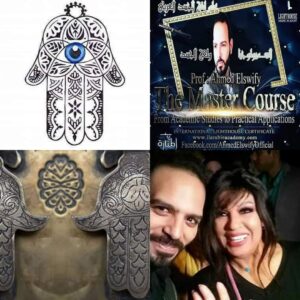with Arabic Lyrics & Translations into &English & Portuguese

News**
our Upcoming workshop Essential Arabic For dancers : https://fb.me/e/Zp0soQ5k
Translate your Favorite Arabic songs , Texts, Documents, Online with cultural Notes
🆕️🆕️Make analysis of Your Arabic song and go over The Right pronunciation
Song translation with a bonus voice or Video recording with the transliteration & pronunciation through zoom or Whats App including cultural notes
Win A Free zoom personalized Analysis & translation workshop for your songs
Ilarabicacademy@gmail.com translate@ilarabicacademy.com
facebook.com/learnarabicsongs
Send us your song at :
📩 ilarabicacademy@gmail.com
facebook.com.com/AhmedelswifyOfficial
Www.ilarabicacademy.com
Www.bookstore.ilarabicacademy.com
🆕️🆕️🆕️🆕️🆕️
we are pleased to release Our new THE BEST OF TARAB CD The Golden Era- Vol 1 > http://bit.ly/TarabCD1
Our new Shaabbi CD vol 2 < http://bit.ly/Shaabbi2
our Shaabbi hits CD vol 1 http://bit.ly/shabbihits1
🇪🇬
Book your first Arabic class
Email : ilarabicacademy@gmail.com
Www.ilarabicacademy.com
A música – the translation & the lyrics :-
حيرت قلبي معاك
Hayart albi ma’’ak
You made my heart feel confused because of the suffering from your love
Você
fez meu coração se sentir confuso por causa do sofrimento por causa do seu amor
حيرت قلبي معاك.. وأنا بداري واخبي
Hayart albi ma’’ak … we ana badarey wa akhaby
You made my heart feel confused and lost .. and I’m trying so hard to hide that suffering and feeling because you are far from me
Você fez meu coração se sentir confuso e perdido … e eu estou tentando muito esconder esse sofrimento e sentimento porque você está longe de mim
قل لي أعمل إيه وياك.. ولا أعمل إيه ويا قلبي
Ow’l ‘ammel ‘eeh wayak … wala ‘amel eeh waya albi
Tell me what should I do with you or what should I do with my heart ?? how can I control this hard feeling and being far from you
Diga-me o que devo fazer com você ou o que devo fazer com meu coração? como posso controlar esse sentimento difícil e estar longe de você
Repetindo # 2 vezes
بدي اشكي لك من نار حبي.. بدي احكي لك ع اللي في قلبي
Bedi aski lak min nar hoby … bedi ahki lak ‘ala elli fi albi
I wish I could complain to you about what I’ve been suffering from the fire of the love … I wish I could tell you more about what’s happening in my heart right now “ from feeling so suffering because we are being far
Eu gostaria de poder reclamar com você sobre o que eu tenho sofrido com o fogo deste amor … Eu gostaria de poder te contar mais sobre o que está acontecendo no meu coração agora “de sentir tanto sofrimento porque estamos nos distanciando”
بدي اشكي لك من نار حبي.. بدي احكي لك ع اللي في قلبي
Bedi aski lak min nar hoby … bedi ahki lak ‘ala elli fi albi
I wish I could complain to you about what I’ve been suffering from the fire of the love … I wish I could tell you more about what’s happening in my heart right now “ from feeling so suffering because we are being far
Eu gostaria de poder reclamar com você sobre o que eu tenho sofrido com o fogo deste amor … Eu gostaria de poder te contar mais sobre o que está acontecendo no meu coração agora “de sentir tanto sofrimento porque estamos nos distanciando”
وأقولك ع اللي سهرني.. وأقولك ع اللي بكاني
We a’olak ‘al elli saharni … we a’olak ala illy bakany
And to tell you more about what kept me awake all nights thinking of you …and kept me crying all nights
E para falar mais sobre o que me manteve acordado a noite toda pensando em você … e me manteve chorando todas as noites
وأقول ياقلبي ليه بتبكي.. وليه يانفس منعاني وليه يانفس منعاني
We ‘aoul ya alb leeh tebky ..we leeeh ya nafs man3any we leeh ya nafs mana3any
And I will tell my heart why would you cry ..and my pride and my soul don’t let me do ..why my soul doesn’t let me cry !! and express my suffering !
Metaphore he doesn’t want to look weak and let his sad and suffering emotions to show to other people
E digo ao meu coração: Por que você chora? … meu orgulho e minha alma não podem me deixaram chorar e expressar meu sofrimento!
Metafora: ele não quer parecer fraco e deixar que suas emoções tristes e sofredoras sejam mostradas para outras pessoas
Repeating #2 times
Repetindo # 2 vezes
Sobre Umm Kulthum ,. about Umm Kalthum :
Umm Kulthum (Arabic: أم كلثوم, Egyptian Arabic: [ˈomme kælˈsuːm]; French: Oum Kalthoum; born Fāṭima ʾIbrāhīm es-Sayyid el-Beltāǧī فاطمة إبراهيم السيد البلتاجي on 31 December 1898, or 4 May 1904;died 3 February 1975) was an Egyptian singer, songwriter, and film actress active from the 1920s to the 1970s. She was given the honorific title Kawkab al-Sharq (كوكب الشرق, ‘Star of the East’).Umm Kulthum was known for her vocal ability and unique style. She sold over 80 million records worldwide, making her one of best-selling singers of all time from the Arab world.
She is considered a national icon in her native Egypt; she has been dubbed “The voice of Egypt” and “Egypt’s fourth pyramid”
Amin Al Mahdi welcomed her into the cultural circles in Cairo. In 1924, she was introduced to the poet Ahmed Rami, who was to write 137 songs for her and also introduced her to French literature eventually becoming her head mentor in Arabic literature and literary analysis. In 1926, she left Odeon records for Gramophone records who would pay her about the double per record and even gave her an additional annual income of 10’000$.[14] She also maintained a tightly managed public image, which undoubtedly added to her allure. Furthermore, she was introduced to the renowned oud virtuoso and composer Mohamed El Qasabgi, who introduced her to the Arabic Theatre Palace, where she would experience her first real public success. Other musicians who influenced her musical performances at the time where Dawwod Hosni or Abu al-Ila Muhammad Al-Ila Muhammad instructed her in the control ver her voice, and variants of the Arabic Muwashshah. In 1932, her fame as a singer increased through sales of her records to the point where she embarked upon a major tour of the Middle East and North Africa, performing in prominent Arab capital cities such as Damascus, Baghdad, Beirut, Rabat, Tunis, and Tripoli.
Umm Kulthum (Árabe: أم كلثوم, pronúncia Árabe: [ʊm kʊlˈθuːm] pronúncia Árabe Egípcio: [ʊm kʊlˈsuːm]; nascida Fatma ʾIbrāhīm es-Sayyid el-Beltāǧī فاطمة إبراهيم السيد البلتاجي; [] ver Kunya) (Nascido em 31 de dezembro de 1898 , ou 4 de maio de 1904, [morreu em 3 de fevereiro de 1975] foi uma cantora, compositora e atriz egípcia de renome internacional, ativa entre as décadas de 1920 e 1970. Ela recebeu o título honorífico de Kawkab El Sharq (كوكب الشرق) que significa “Estrela do Oriente”.
Umm Kulthum era conhecida por sua extraordinária capacidade vocal e estilo, e ela foi uma das maiores e mais influentes cantoras do século 20, onde ela vendeu mais de 80 milhões de discos em todo o mundo. Umm Kulthum é considerada um ícone nacional em seu país natal, o Egito, e foi apelidada como A voz do Egito e a quarta pirâmide do Egito. Ela continua sendo a lendária cantora mais reverenciada do Egito e de todo o mundo árabe.








More Stories
New Song Translation A7beiny in Classical Arabic
Arabic Meditation- Healing with colors
Egyptian & Arabic Food Lesson: Spices